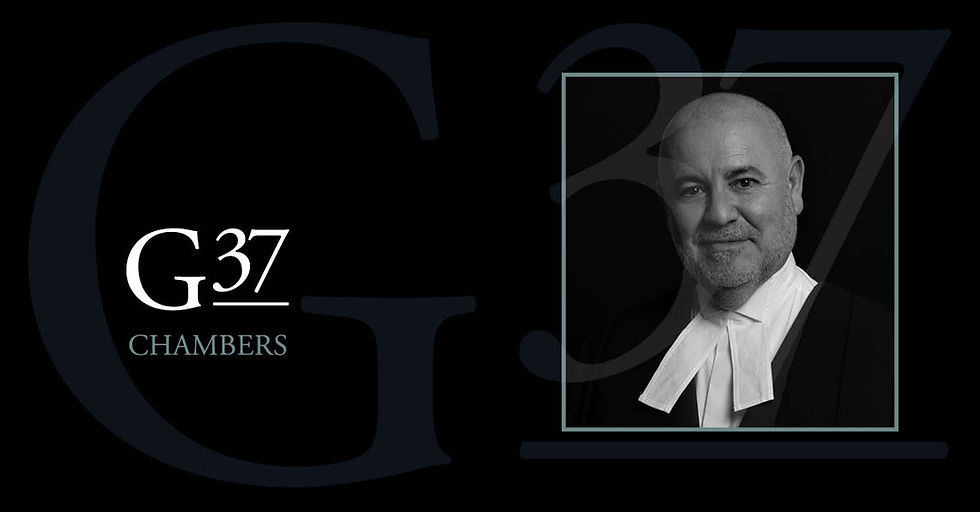The International Court of Justice Hears the Case against Syria on Torture
- Rafael EPORT STUDIO
- Oct 12, 2023
- 3 min read

The International Court of Justice (‘ICJ’) on Tuesday began hearing the historic case against the Syrian Arab Republic for acts of torture since at least 2011 brought by the Netherlands and Canada under the UN Convention Against Torture (‘UNCAT’). It is the first time that an international court heard about Syria’s widely documented use of torture as a method of silencing a peaceful opposition. Syria failed to attend the hearing on provisional measures leaving half the court empty. Whilst not surprising that it has failed to engage in a process that it has sought to frustrate over the past three years through, as stated by the Dutch delegation, a process of deliberate delay and obfuscation, and some of the Syrian victim community wanted to see the Syrian delegation forced to confront compelling and well evidenced allegations of State sponsored and industrialised torture of the civilian population. Other members of the Syrian victim community interpreted Syria’s absence due to the evidential strength of the case, making it difficult for Syria to respond to the compelling allegations.
Judge Joan Donoghue, the President of the Court, opened the proceedings by stating: “The Court regrets the non-appearance of the Syrian Arab Republic”. The application filed on 8 June 2023 under Article 30(1) of the UNCAT is a rare instance of a case being brought under this Convention to what is commonly referred to as the World Court.
Over the recent years, Syria has sought to normalise relations with the international community and brush over the arrest, torture, disappearance, execution of tens of thousands and the entrenchment of a culture of impunity. As stated by the Dutch delegation, torture continues and every day matters. The Regime’s lack of engagement in addressing credible and well-documented breaches of its international obligations speaks volumes as to its commitment to a process based on the most fundamental principles of democracy, transparency and the rule of law.

The powerful (and uncontested) oral submissions advanced by the Dutch and Canadian delegations included testimony that detainees were routinely subjected to multiple forms of torture, including beatings, scalding with hot water and cigarettes, electrocution and putting a detainee in a tyre followed by severe beatings (dulab). Detainees were often held in appalling conditions in overcrowded prisons, starved, and denied proper medical care. Torture was also used as a means of intimidation, including rape or sexual violence and the refusal to release information about disappeared family members.
The application for provisional measures filed on 8 June 2023 under Article 41 of the Statute of the ICJ seeks urgent measures to stop the continued torture of thousands who remain in detention. The Court heard how, since proceedings had begun, the number of victims of torture had increased. René Lefeber, the Dutch representative, told the Court that:
“The persistent and recurring practice of torture in Syria only serves to underscore the pressing need for the Court to indicate provisional measures. The manifest threats to life and bodily and psychological integrity mean that every day counts. Persons in Syria who are currently detained or at risk of being detained cannot afford to wait any longer.”
The provisional measures also requested access to prisoners, the improvement of their conditions, not to destroy or make inaccessible evidence related to the case, and to disclose the location of the burial sites of the multiple victims who died from torture.

In order for the application to succeed, the Court will have to satisfy itself that it has prima facie jurisdiction, that the rights claimed by the applicant States appear to be at least plausible, that there exists a link between the measures requested and the main claim, that there is a risk of irreparable prejudice and that there is an element of urgency.
Whilst today marks just the beginning of what is likely to be a long process, it marked the importance that that process has started. The signal of intent demonstrated by the Dutch and Canadian delegations represents a lifeline to the Syrians who have suffered intolerable and isolated cruelty without any end in sight. Today represents a lifeline to not only those who have suffered, but also to all of us who see justice institutions as a way to resolve conflict.

Members of Guernica 37 Chambers, led by Toby Cadman and Ibrahim Olabi, have been proudly assisting the Netherlands with different elements linked to the case.







